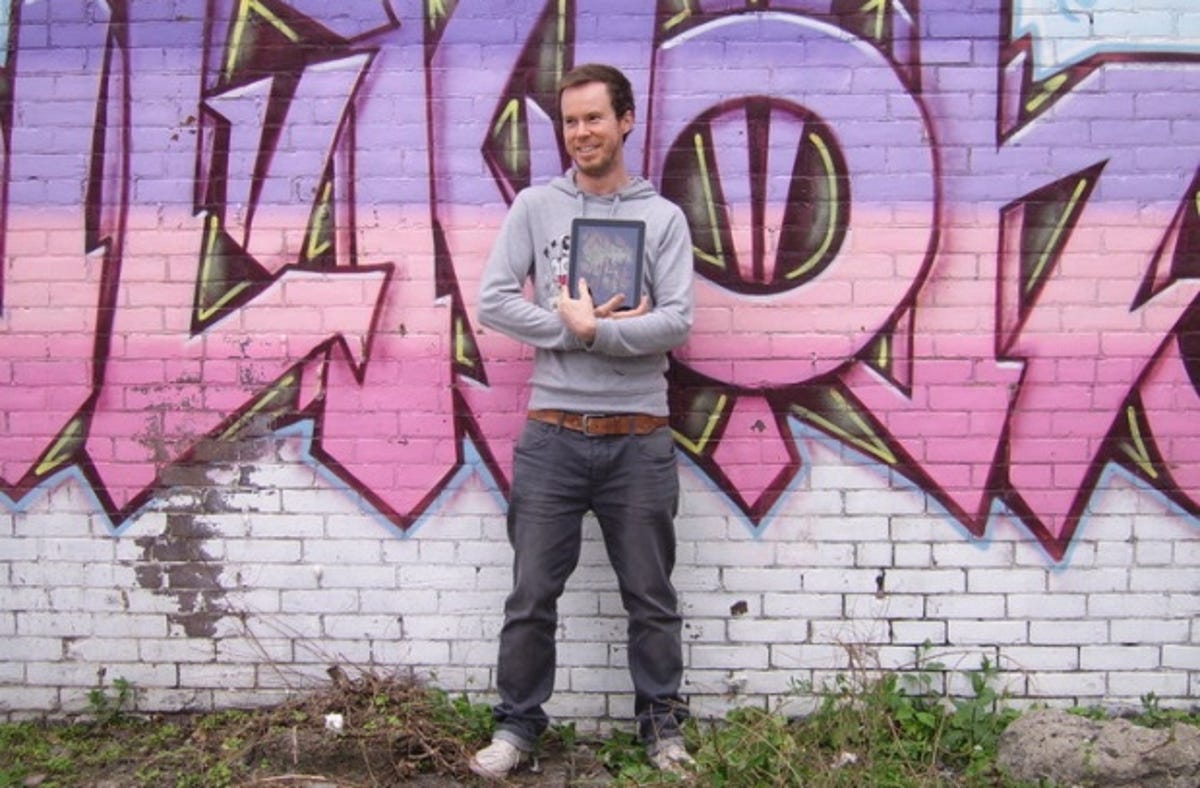
Chris Stevens used to write reviews and make funny videos for CNET UK. He left to start an app company, Atomic Antelope, which made the smash-hit Alice for the iPad apps. Now he’s written a book about the app development scene, Appillionaires.
This is an exclusive extract.
Previous generations strapped on electric guitars and fought for superstardom in sweaty dive bars, but today’s youth boot up Xcode on their MacBook Pros. The rise of the App Store and its progeny — the multi-millionaire developer, or ‘Appillionaire’ — is inspiring a new generation of indie kids to turn towards coding.
The programmer, once a few rungs above coal miner in the food-chain of cool, is now one of the most stylish and dramatically lucrative jobs in the world.
Take the two cousins who made Angry Birds: their earnings last year eclipse those of the Rolling Stones. And consider the brothers who made Doodle Jump — having shipped over 10 million copies, they put most bands to shame.
The rise of the app has massively altered the public perception of what a software programmer is. It has turned a generation of geek coders from social misfits into superheroes. Mention to someone that you make iPhone apps and their interest will pick up instantly. They may even ask if you’re a millionaire. This is an astonishing change from what a programmer in the 80s could have expected in reaction to their job description.
We now live in an age where companies like Tapulous can, apparently without irony, run a job ad that reads, “We are hiring rock-star developers.” Amazingly, if you visit a modern development studio, you may find the workers are treated a bit like rock stars. The demand for good programmers has never been greater and this is reflected in the perks being offered to entice them to new start-ups.
Just as rock bands have rivalries, so do app developers. But rather than a physical confrontation backstage, the developers use more surreptitious means of attack. Tactics range from writing bad reviews of their rivals’ apps on iTunes, through to contacting Apple to snitch on their competitors’ minor violations of the App Store rules. Then there are the developers who use shills to post positive reviews of their own apps, to create an impression that an app is far better than it actually is.
Tensions between rival developers are inevitable because the Appillionaires fight it out in a crowded landscape of over 160,000 apps. It’s a place where millions of dollars can be made or lost in an instant; where dropping off the top ten in the App Store means an exponential decline in sales, obscurity, and even ruin.
It’s a bizarre, upside-down chaos where venture capitalists might spend millions on an app, only to discover themselves beaten to the top spot in the App Store by a 15-year-old, armed with nothing more than a Mac and a dog-eared copy of Objective-C for Dummies. The size of your corporation and the scale of your investment can be outmatched simply by the intellectual prowess of your competitor working out of his or her bedroom.
Some developers play dirty. Vietnamese iPhone developer Thuat Nguyen had all of his apps pulled from the store by Apple on account of “fraudulent purchase patterns” — it transpired that the reason Nguyen’s apps were topping the charts was that he had hacked into iTunes accounts and used stolen credit card numbers to buy his apps into a leading position. More than 40 of the top 50 apps in the Books category were occupied by the developer before Apple pulled the plug.
In the past year, the App Store has completed its journey out into popular culture, singing a crescendo with the tie-in deal between Angry Birds and the animated feature film Rio. It’s this mainstream visibility, and the App Store’s reputation in the media as a path to fortune and glory, that has attracted a new breed of app developer — one who sees the App Store purely as a financial investment rather than a creative one. Simon Oliver, creator of Rolando, recognises this division.
“I think the App Store has attracted two groups — those who see it as a major commercial opportunity, and those who see it as way to get their creations out there,” says Oliver, “and obviously in many cases there is a considerable overlap.”
Perhaps it was inevitable, when the company behind the marketing success of the iMac and the iPod turned its hand to promoting independent software development, that the public image of developers would change forever. Apple has literally transformed the social acceptability of programmers and overseen the rise of the geek.
As Daniel Wood — owner of Southampton-based indie app studio Runloop — explains it, “Apple has done the seemingly impossible: they’ve made developing cool. A few years ago the man on the street didn’t want software, or talk about software.
“Now suddenly everyone’s like, ‘Have you seen this app, have you seen that app — it makes your face into a fat person!’ People have been trying to do this for ages, make programming cool. They used titles like ‘creative developer’, but it basically just means programmer. Somehow Apple did the impossible.”
It is this, the cool-ification of programming, that might be the greatest trick Apple has ever pulled.
At dinner parties where the job title of programmer was treated with blank faces, now suddenly we have entered an era of programmer as superstar.



